John Groves
London Theatre 1 / Operetta Research Center
1 November, 2023
In 1878 The Chimes of Normandy became the ‘hit’ musical show in London, running for over 700 performances, which was most unusual in those days. Its French composer, Robert Planquette, then 25, was soon contracted to write a piece especially for the West End stage, in English. This was to be Rip Van Winkle, based on the story of the same name by Washington Irving and the play by Dion Boucicault.
It was billed as a “comic opera” rather than an “operetta”, but is much more in the style of Edward German’s Merrie England than Gilbert and Sullivan, Planquette having on purpose composed music similar to that of successful British musical works of the time.
It had a successful run of over 300 performances, but has rarely been seen since, so Gothic Opera’s current production gives 21st century audiences a chance to see what excited audiences 140 years ago – and how much tastes have changed!
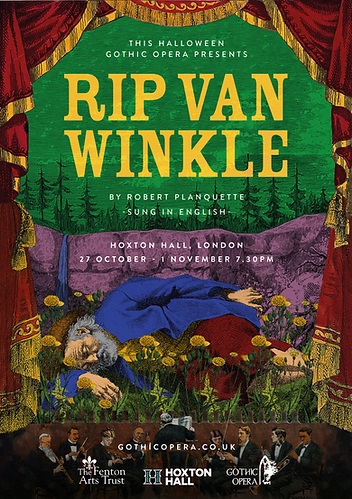
Poster for “Rip Van Winkle”. (Photo: Gothic Opera)
Kurt Gänzl has written an excellent and highly detailed article on the history of this show in The Encyclopedia of Musical Theatre which I will not even attempt to abridge here – it is fascinating as, in the two years the “operetta” took to travel everywhere, and eventually Paris, most of it had been rewritten so that it gradually transformed into what we would recognise as a French operetta.

Scene from “Rip Van Winkle” at Hoxton Hall, 2023. (Photo: Gothic Opera)
Musically the present production, using much of the “stalls” area of Victorian Hoxton Hall, built as a music hall in 1863, but much more intimate than Wilton’s for those who know that venue, is very successful. The company aims to give opportunities for young professional singers and all twelve in Rip Van Winkle look to have a very bright future, if ability is anything to go by!
The title role was taken by Robert Garland who initially seemed to find the tessitura slightly too high for his voice, but quickly settled into a relaxed portrayal of the lazy husband who is put to sleep for twenty years.
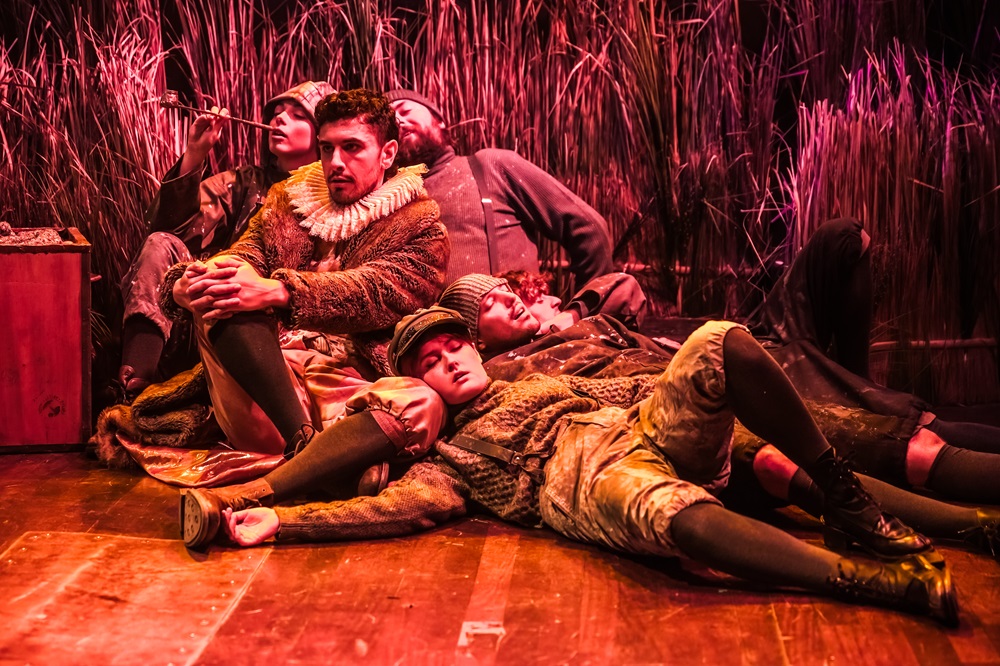
Scene from “Rip Van Winkle”, 2023. (Photo: Gothic Opera)
Stephen Whitford exhibited a most attractive voice and strong personality as the moneylender Derek, with very clear diction and animated face, full of energy, giving the comic opera forward impetus whenever he was onstage.
Perhaps owing to the rewritten dialogue (uncredited), heavily abridged from the original, the role of Katrina seemed to have little motivation but was well sung by Alice Usher, another performer who was always watchable, even when she was just reacting to situations.

Scene from “Rip Van Winkle”, 2023. (Photo: Gothic Opera)
It was a shame that Gretchen de Larragoiti’s enunciation in the role of Rip’s wife Gretchen was not as clear as it might have been, especially in the dialogue, but she exhibited a strong, firm soprano voice. (Neil: there is an umlaut, if you have one, over the first “I” of Larragoiti)
The sub-plot, such as it is, concerns the romantic entanglement of Hans (Valerie Wong in a breeches role) and Alice (Hannah Bennett), both of whom exhibited very pleasant singing voices – even if Hans seemed to spend most of the time away from his wife at sea!
Thomas Litchev-Hudson, Lars Fischer, Isabelle Atkinson, Phoebe Rayner, Alex Riddell and Jamie Formoy all demonstrated fine voices, acting ability and athleticism in various minor roles as well as providing a very strong chorus.
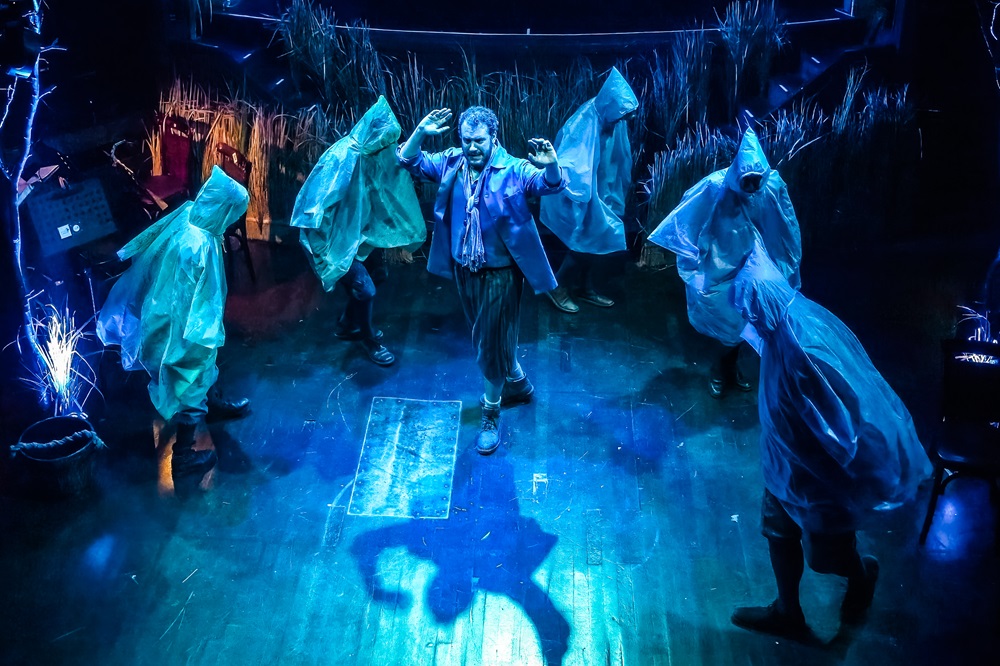
Scene from “Rip Van Winkle”, 2023. (Photo: Gothic Opera)
The orchestra of six under Robin Wallington gave the piece a great sense of style, using an arrangement of Planquette’s original by Leon Haxby. Situated on the floor of Hoxton Hall they never seemed obtrusive and were certainly not too loud as can easily happen when musicians start enjoying themselves!
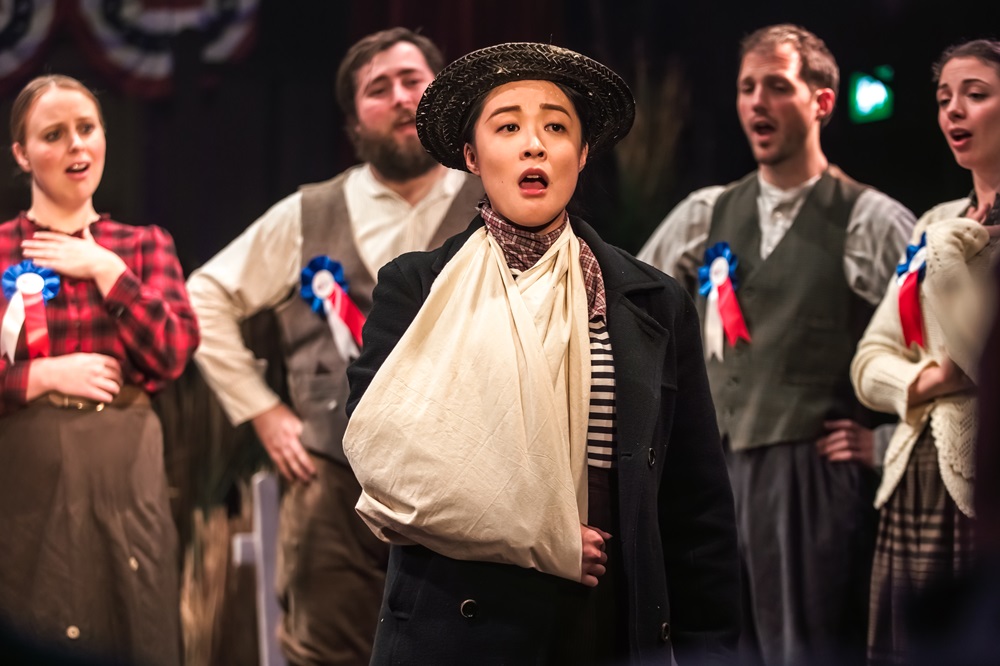
Scene from “Rip Van Winkle”, 2023. (Photo: Gothic Opera)
The imaginative yet simple set, utilising the whole hall including the high stage, was designed by Elliott Squire, as were the costumes, and the superb lighting by Catja Hamilton emphasised the trees climbing up to the second gallery and was inspired! Like most successful stage designs, both were deceptively simple, looked effective and were easy to use by the company.
Direction was by Evangeline Cullingworth, whose first comic opera/operetta production this was, and it showed!! In a detailed programme note she explains why she tried to change it from a frothy, hilarious entertainment into a serious piece of theatre, with the occasional touch of humour!

Scene from “Rip Van Winkle”, 2023. (Photo: Gothic Opera)
She says that the story was “an unsettling story to revisit … we have explored the journeys of European colonisers (who) claimed ownership of a supposedly new land…… the librettist (H. B. Farnie) does not acknowledge that indigenous community … Everything has been swept under the carpet and trampled over…I hope that the moments of contrast, dissonance and horror … allow space to reflect on the way colonial histories have mythologised and consumed.”
The role of Rip was originally written especially for the young comedian Fred Leslie, who could also yodel so Planquette capitalised on that. When Leslie left the cast, it quickly folded and D’Oyly Carte bought the right to take on tour.
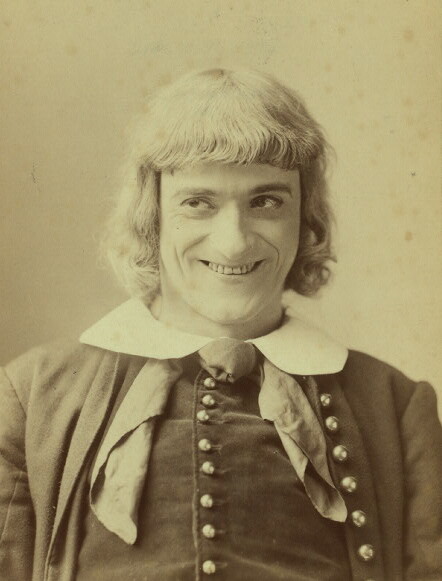
Actor Fred Leslie in “The Merry War”. (Photo: The New York Public Library)
There is none of Fred Leslie left in Cullingworth’s solidly earth-bound production, let alone a comic landlord and serving wench! You cannot maul around any piece of theatre like this and expect it to survive!
An interesting evening - but not much fun. No laughs left!
For more information, click here.
